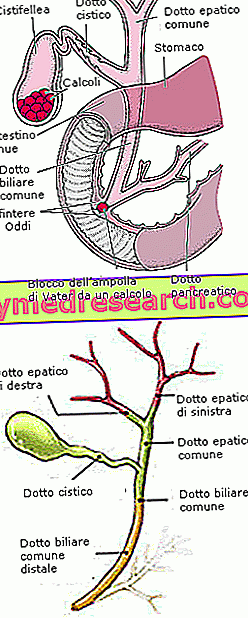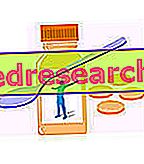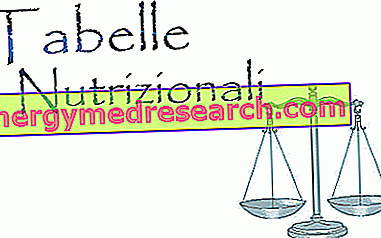Definition
Fortunately rare in humans, leishmaniasis is a zoonosis, a parasitic pathology related to infection with protozoa belonging to the genus Leishmania . Leishmaniasis causes purely cutaneous lesions, which tend to heal spontaneously; when the disease persists, the symptoms can degenerate and cause visceral or skin mucus damage.
Causes
Leishmaniasis is caused by a protozoan (gen. Leishmania ), transmitted from the carrier animal to man: the transmission of the protozoan can take place through a phlebotomist (a gnat, like Phlebotomus perniciosus, Phlebotomus papatas ), previously infected by the protozoan. The infected gnat, feeding on blood, pricks the man and transmits the disease.
- Risk factors: high temperatures and humidity, hot climate environments, rural and coastal areas
Symptoms
Most often, leishmaniasis manifests itself with swallowing and respiratory difficulties, a stuffy nose, a runny nose and ulcers in the mouth, on the lips or in the nose (typical symptoms of cutaneous leishmaniasis); in the case of severe leishmaniasis (systemic visceral type), the characteristic symptoms are diarrhea, fever, cough and vomiting, often associated with fatigue, weakness and loss of appetite. The symptoms are completed by other symptoms, such as greyish and scaly skin, abdominal disorders, intermittent fever, thinning hair, weight loss, night sweats.
Information on Leishmaniasis - Drugs for the Treatment of Leishmaniasis is not intended to replace the direct relationship between health professional and patient. Always consult your doctor and / or specialist before taking Leishmaniasis - Drugs for the treatment of Leishmaniasis.
drugs
It is not always necessary to resort to the administration of drugs for the treatment of leishmaniasis, since it often tends to heal spontaneously. If the clinical conditions of the infected patient were such as to disfigure the skin or otherwise create substantial damage, treatment with medicines is highly recommended. Similar argument for the visceral form of leishmaniasis, clearly more serious.
Although there is still no effective vaccine to prevent leishmaniasis, prevention is very important: when going to countries with a high risk of leishmaniasis, it is recommended to apply specific repellents to insects in order to avoid being points from a pappataci infected by the Leishmania protozoan.
The most commonly used drugs are antimony derivatives (meglutamine antimony and sodium stibogluconate); other drugs include polyenics (eg Amfotrecina B) and other antibiotics such as pentamidine, ketoconazole, paromomycin and miltephosine.
In extreme cases, leishmaniasis can even deform the face: in this case, it is recommended to resort to plastic surgery to correct the damage. Furthermore, in patients in whom drug resistance to the described drugs is observed, it may be necessary to remove the spleen (splenectomy).
- Sodium stibogluconate (eg Sod Stib FN IM 100ML 1F 33%): this is an organic antimony drug used as a first-line medicine for the treatment of visceral leishmaniasis. The dosage plans to take 20 mg / kg (maximum dose 850 mg) for 20 days, by intravenous or intramuscular injection. The drug can cause anorexia, nausea, vomiting, drowsiness, jaundice, skin rash, pancreatitis and thrombosis. Consult your doctor before administering the drug.
- Allopurinol (eg. Zyloric, Allurit, Allopurinol FN): the drug is a xanthine-oxidase inhibitor, widely used in gout therapy. The drug should be administered orally. For the treatment of cutaneous leishmaniasis, a dosage of 20 mg / kg per day is recommended, associated with 30 mg / kg per day of meglutamine antimonate, for 20 days. For the treatment of visceral leishmaniasis, in patients who have undergone a kidney transplant, 300 mg per day are recommended together with 50 mg / kg of meglutamine antimonate per day.
- Miltefosina (eg. Milteforan, Miltex): blocks the replication of the parasite or favors its death, although it does not completely cure the affected subject. The drug is indicated for the treatment of leishmaniasis in humans: it is a phospholipid derivative (or similar synthetic lipid hetero) that exerts its cytotoxic action on diseased cells. In the past, miltephosine was used exclusively for the treatment of tumors. The drug should be taken orally; it is not marketed in Italy.
- Amfotercin B (eg Abelcet): the drug is a polyene antibiotic used to treat visceral leishmaniasis that does not respond to monotherapy treatment with an antimonial derivative. The drug can be taken either in association with an antimony, or after the first therapy. Take approximately 0.25-0.5 mg / kg of drug per day intravenously. The dose can be gradually increased by 0.5-1 mg / kg a day. The duration of treatment is normally 3-12 weeks, depending on the severity of the condition. For severe visceral leishmaniasis, take 50 mg of the drug a day. Do not exceed 1.5-2 grams (total dose). The drug is very effective: its limit is the very high cost.
- Pentamidine (eg. Pentacarinat, Pentam IS FN): the drug is an antimicrobial indicated for the treatment of infections sustained by Lishmania, to be preferred in therapy if the treatment with antimonials does not show any appreciable benefit. It is recommended to take the drug at a dose of 2-3 mg / kg, intramuscularly or intravenously, once a day or every 2 days for 4-7 doses, in full compliance with the instructions given by the doctor. For visceral leishmaniasis, it is recommended to take the drug at a dose of 2-4 mg / kg intravenously or intramuscularly, once a day or every 2 days for 15 doses. Amphotercin B is the most widely used antibiotic drug: Pentamidine can trigger serious side effects (second-line drug for the treatment of leishmaniasis).
- Ketoconazole (eg Ketoconazole EG): second choice drug for the treatment of leishmaniasis. For the dosage and duration of treatment: consult a doctor.
- Paromicin (es.Humatin): it is an antibiotic-antimicrobial drug, which acts on gram-positive and negative bacteria, on tapeworms and some protozoa. The dosage of 15mg / kg / day of paromicin (for 3 weeks) appears to be the most effective for the treatment of leishmaniasis, especially in its visceral variant.



